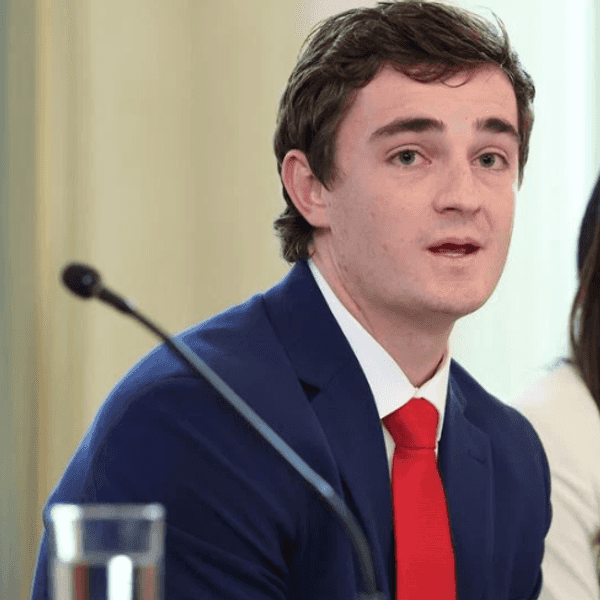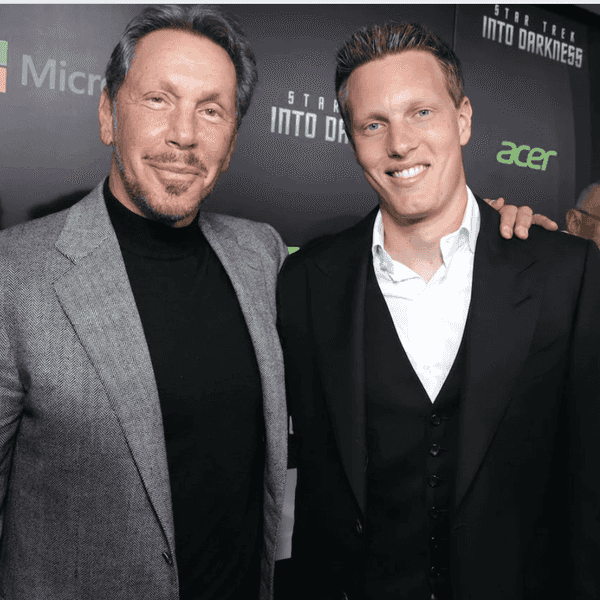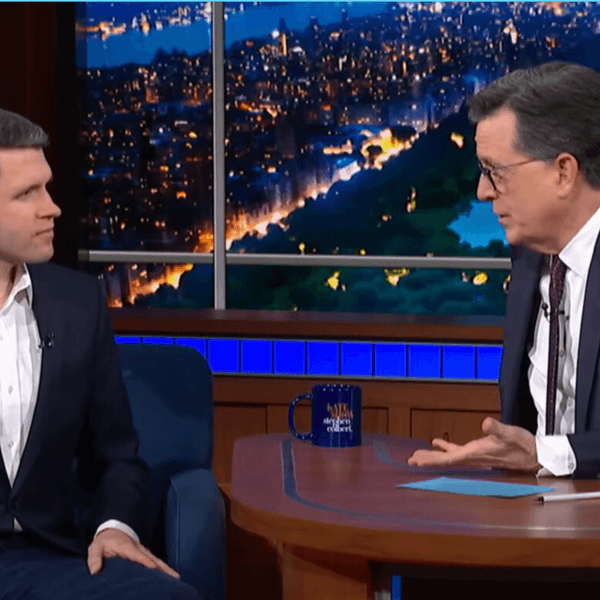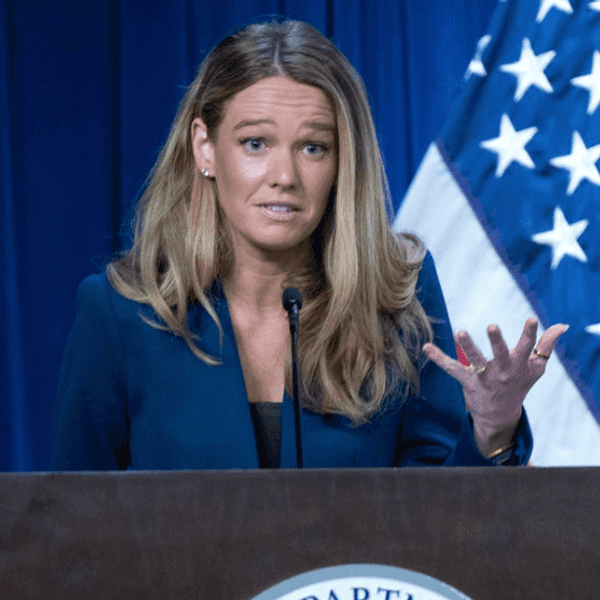We're Living In The Hurricane -- And Now We Call It MAGA
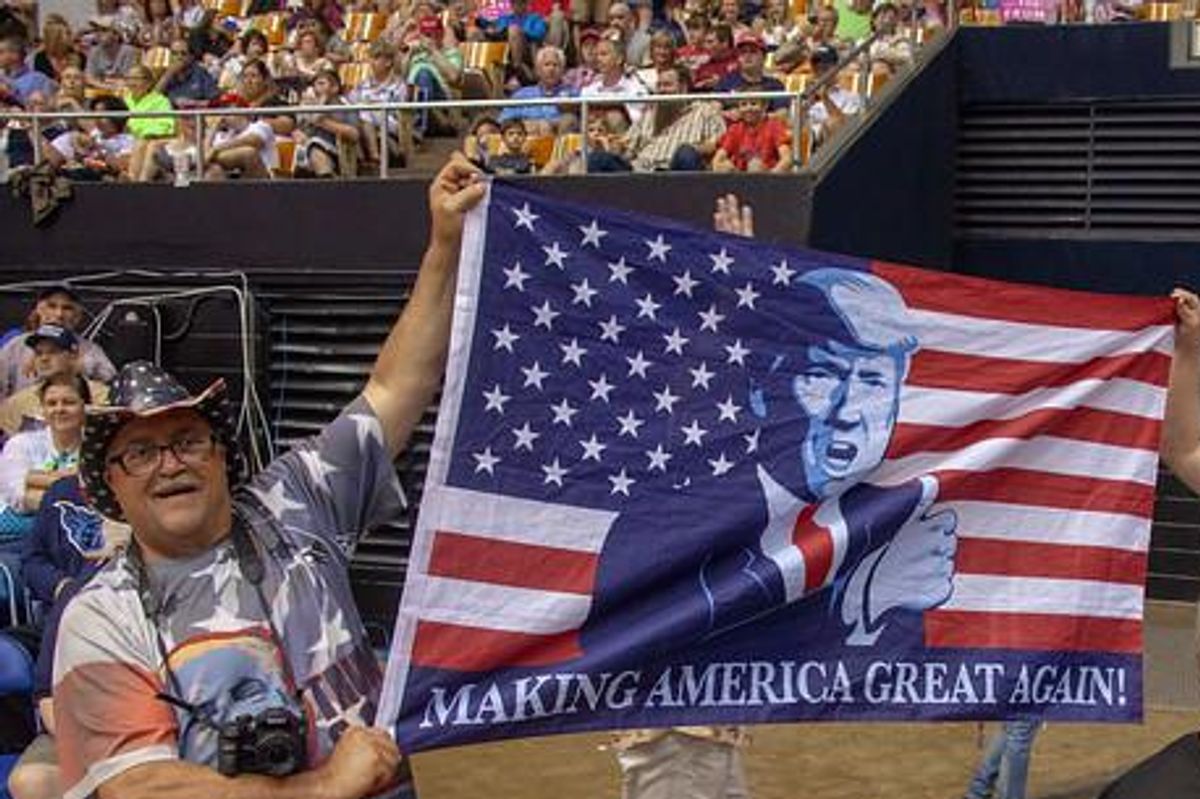
Looking back on the life I’ve lived, I realize that drugs were a dress rehearsal for what we’re going through now. A generation of us took drugs when we were young and didn’t know what life had in store for us, but in my case, at least, taking a little mescaline seemed like a good idea, because what drugs amounted to was self-imposed chaos, and I suspected chaos was on the horizon, if it wasn’t all around us already, albeit in a form that wasn’t beating us constantly about the head and shoulders.
We didn’t realize it at the time, but we were living through a rather gentle era. The 60’s and 70’s happened with the tailwind of the prosperity decade of the 50’s behind them. You remember the 50’s? Everybody could afford a little house with a two-car garage and a color TV and dad had a job paying enough that mom didn’t have to work to help pay the mortgage and keep food on the table. A company’s CEO back then made about 20 times the pay of the average worker. In other words, the “wealth,” if you could call it that, was getting spread around, and it wasn’t celebrated the way it is now. People who had a great deal of money seemed like curiosities and were treated as such, not as gods, they way they’re treated now. I was around some very wealthy people back then, and on the whole, they were pretty nice. I even got invited over to some of their houses.
A guy like Donald Trump, said to be one of the wealthiest people in New York City, was a buffoon, and was treated like one. I saw him at Studio 54 one night, in a tight little clutch that included Roy Cohn, whose face-lift scars were visible even in nightclub light, and Halston in one of his turtlenecks and trousers so soft and luxurious, they moved like water. People walked past them headed for someone really interesting like Andy Warhol, on the arm of one of his transvestite superstars, or Mick Jagger, looking as desiccated and wrinkled as a crumpled paper bag.
Of course, the era we were living through only looked gentle, from where we were in our New York apartments and lofts or sinecures in college English departments or jobs with corporations that seemed benign because we had decent paying jobs. The hurricane of racism and sexism raged all around us, but you had to go looking for it to see it up close. Who knew that someone as extraordinary as Ruth Bader Ginsburg could be on the law reviews at both Harvard and Columbia law schools and graduate and have a hard time getting a job, after a clerkship with a district court judge, finally settling for a job teaching law at Rutgers for less money than her colleagues because her “husband had a very good job,” as she was told by her department head.
Poverty, to put it bluntly, was somewhere else – blocks and miles away up in Harlem and the Bronx, or down in Mississippi in cold water shacks or out in the Midwest where family farmers were being stripped of their land by something that would become known later as Big Agriculture. If you lived a life like I had, you didn’t make a great deal of money, but getting on a plane for Los Angeles wasn’t impossible, nor was a night out for dinner at a comfy boite like Raoul’s on Prince Street, or a yearly membership to Circle in the Square, where you could see Audrey Hepburn in The Cherry Orchard, or Colleen Dewhurst and Jason Robards on Broadway in A Moon for the Misbegotten. I was earning 80 bucks a week from the Village Voice, and I could afford this stuff.
Yet while the era may have been economically gentle, as I put it before, it wasn’t politically. In 1963, our president was assassinated in Dallas. In 1965, Bloody Sunday on the Edmund Pettus bridge in Alabama, 600 civil rights marchers were attacked by billy-club wielding cops and police dogs. In 1968, what were euphemistically called “race riots” happened across the country when Martin Luther King Jr. was assassinated in Memphis. By 1973, the year A Moon for the Misbegotten was on Broadway, more than 50,000 Americans had been killed in Vietnam, 8,000 miles from that stage. In Washington, D.C., Richard Nixon, who had won 49 of 50 states in the 1972 presidential election, was fighting for his political life against charges that he had cheated in the election and had used his powers as president to harass and even arrest his political enemies.
I remember what we called “Watergate” as an exciting time, even though underneath it all, many thought our democracy was at risk…and it was. We look back at the resignation and arrest of Vice President Spiro Agnew in October of 1973 for taking bribes in his White House office with a kind of nostalgia at this point. He was a buffoonish political figure and a crook, and he got what was coming to him.
But Richard Nixon was something else altogether. It was hard not to see real evil in the man, especially as the facts of Watergate made their way into the political life of the country via press reports and arrests and prosecutions of White House “plumbers” and other conspirators and then the congressional investigations that preceded an impeachment that never came, because Nixon resigned in 1974. With the ascension of Gerald Ford to the presidency, and after his pardon of Nixon, the nation seemed to collectively sigh in relief.
But it was there all the time, the political chaos of racism that Nixon exploited so expertly with his “Southern strategy,” and the rot within our economic system, that by1980 had doubled the pay ratio of CEO to average worker to 40 to one. It was happening right in front of us, but somehow, we either couldn’t or wouldn’t see it coming: What we now call income inequality by the year 2000 had pushed the CEO to worker income ratio to 200 to one, and we were off to the races.
You look back, and you ask yourself, how did this happen, what’s going on right this minute with the same Donald Trump we laughed at in New York City back in the 1970’s. Sixty-three million people voted for him in 2016 – nearly 3 million fewer than voted for Hillary Clinton, and still he won. In 2020, 74 million of our fellow Americans voted for him. Sure, 81 million of us voted for Joe Biden, but 74 million? The number still catches in your brain like an ongoing stroke. How could this be? Who were they?
We have a name for them now, MAGAs. But there’s a better one: fellow Americans. They were out there all along. When they voted for people like Nixon and Reagan, it didn’t seem like an earthquake. They were voting for the other guy, even if in Nixon’s case, the other guy seemed to us like a psychotic monster. But the political chaos of today has been with us, even if just beneath the surface, for over 50 years.
It was out there, somewhere beyond boundaries we infrequently crossed and, yes, usually flew over, so they were unrecognizable when 74 million people walked into voting booths and voted for the likes of Donald Trump. They did it, political pundits now say, to stick it to the libs, but I think it’s even simpler than that. They did it because they wanted to be seen. That they believed the lie Trump was the one who saw them is beside the point. They voted for him because they wanted to express what they had believed but had been unable to say for decades: their racism and their anger at a system they thought had walked all over them. That the system was democracy itself didn’t matter. If it meant taking apart democracy and replacing it with something else, so be it.
The political chaos represented by Donald Trump was among us, as it were, all along. The hurricane it seems as if he wrought has been raging for decades, not only out there in the hinterlands in small clapboard houses but down the street from us. It’s a hurricane which now has a name, Trumpism, but that’s just a convenient way to describe something far more terrifying to contemplate. Its name is us.
Lucian K. Truscott IV, a graduate of West Point, has had a 50-year career as a journalist, novelist, and screenwriter. He has covered Watergate, the Stonewall riots, and wars in Lebanon, Iraq, and Afghanistan. He is also the author of five bestselling novels. You can subscribe to his daily columns at luciantruscott.substack.com and follow him on Twitter @LucianKTruscott and on Facebook at Lucian K. Truscott IV.
Please consider subscribing to Lucian Truscott Newsletter, from which this is reprinted with permission.
- Lauren Boebert's Gun-Nut Grill Is Getting Evicted ›
- Right-Wing Legislators Threatening Librarians With Imprisonment ›
- 'Bizarre' Competition Among Politicians Offering Internships To Rittenhouse ›
- Cheney Warns College Students: Republicans Want To Block Your Vote ›
- Florida Men: Why We Elect Crooks Like Donald Trump -- And Richard Nixon - National Memo ›
- Florida MAGA Congressional Candidate 'Wildly Plagiarized' Honors Thesis - National Memo ›
- Rubio, Scott And DeSantis Want Disaster Aid They Voted Against For Other States - National Memo ›





